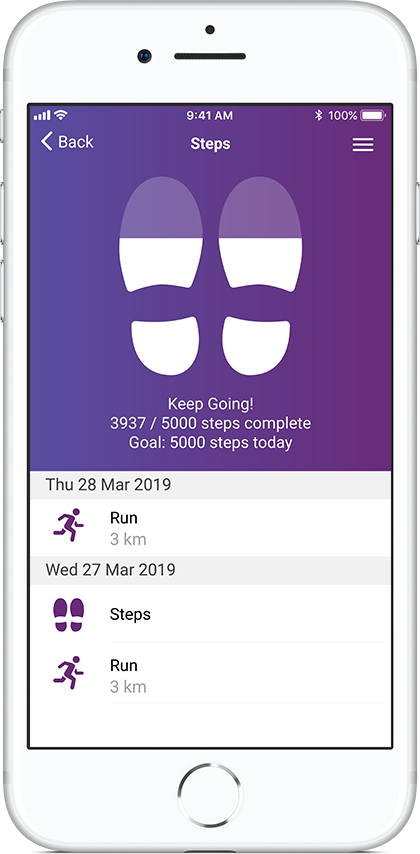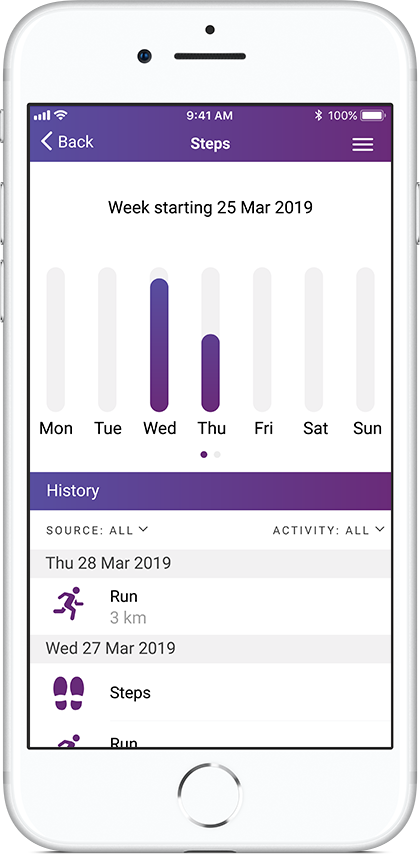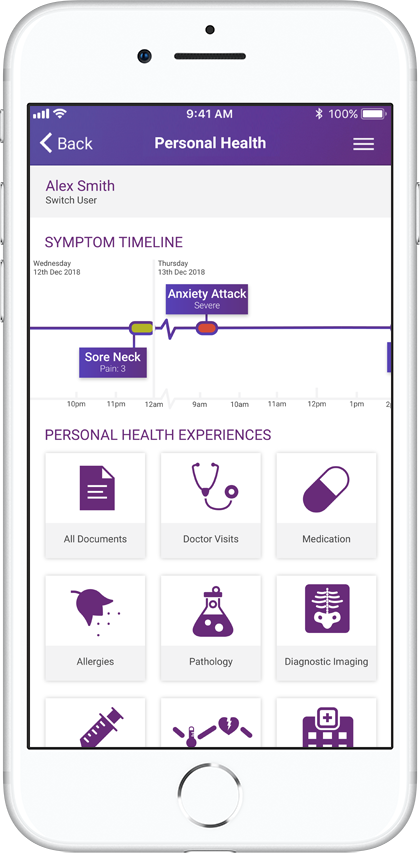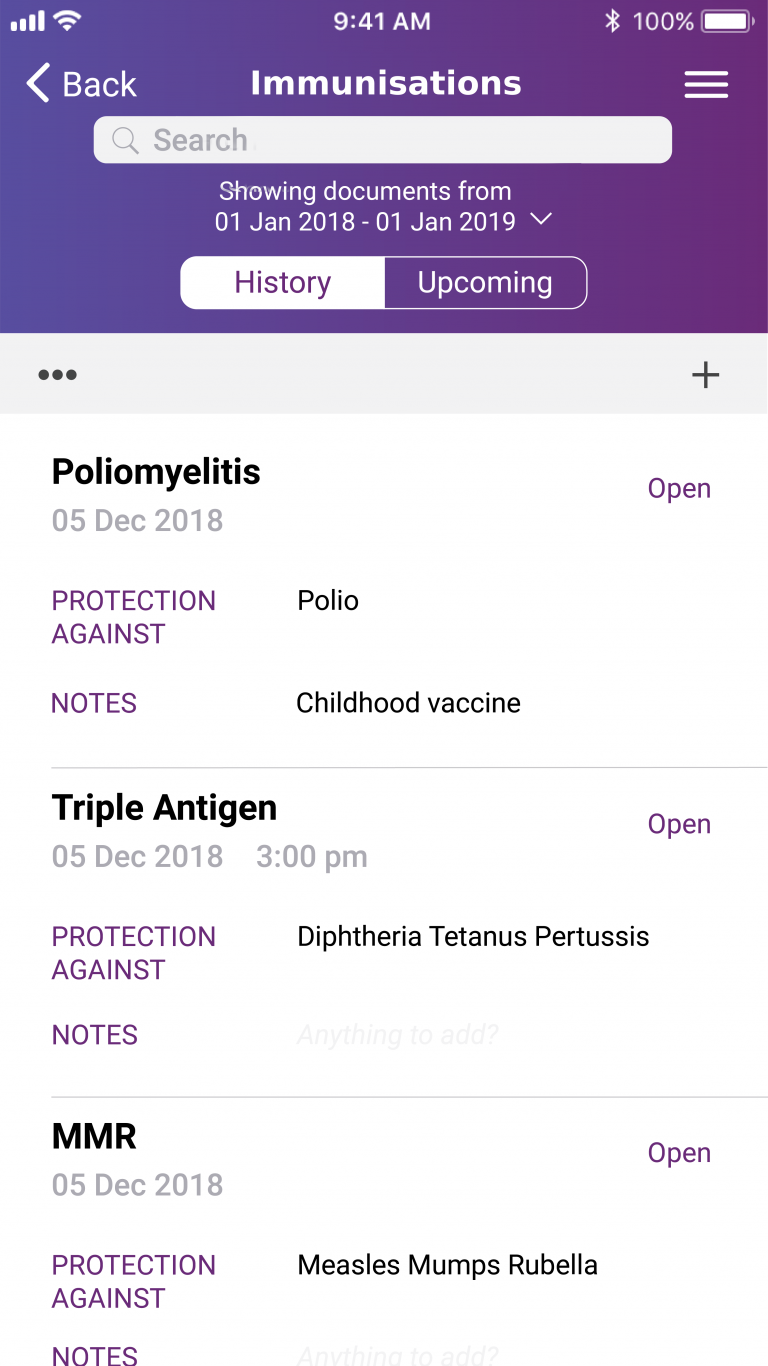WoW Woman in HealthTech | Maree Beare, founder and CEO of Wanngi
Interview by Marija Butkovic @MarijaButkovic
Maree Beare is the founder and CEO of Wanngi, a Brisbane based startup that has developed a multi-platform mobile web app to empower people with their own health and wellness information. Maree is passionate about using innovative technology to positively impact the lives of others. She is renowned as a forward-thinking leader in the technology sector, with extensive experience advising many of Australia’s leading organisations in transforming their businesses and delivering high-profile technology programs. Her work with Wanngi earned her 3 nominations in the 2018 Australian Industry Innovation Association Awards: Startup of the Year, Community Service Markets, and Infrastructure and Platforms Innovation of the Year. Maree exemplifies the values of Wanngi through her authentic vision for the company, as she builds a team focused on integrity and innovation.
What is the idea behind Wanngi and how did you come up with it?
In early 2017 the notion of a mobile app for people to view their health and wellness information took centre stage. The Australian government had built a digital health platform for providers and hospitals to contribute to e-health record for all Australians. I tried to access my health record and the only option I could find was the government consumer portal. I realised that the eHealth record was only really accessible for clinicians and bureaucrats, so I set about making it accessible to people, giving them more control over their health information. In August 2017 I formed Wanngi to begin developing an easy mobile friendly app for people to see their own health information and connect it to their wellness information as well.
When did all start and do you have other members in your team?
Wanngi was founded in early 2017 and we have now recently grown to 8 very talented, diverse and creative team members to support our recent Launch of Wanngi. I have an almost 50/50 mix of technical developers and designers and digital and content marketing specialists.
How long did it take you to be where you are now?
We have just officially launched, so it has taken two years to fully develop the Wanngi app and brand so that it is ready for consumers. It’s been a long road - this past year especially has been a rigorous year for Wanngi, designing a tightly secure app with privacy at its heart, as well as ensuring the user experience is of exceptional quality.
What was the biggest obstacle?
Government bureaucracy and changes to legislation surrounding connecting to e-health records, leading to many delays and uncertainty with financial impacts. As with any new venture we were keen to onboard customers and scale appropriately to support their needs. This has led us to launch with a product based on solving current problems for people managing their own health and injuries, with available supporting health and wellness data. Wanngi has a roadmap to include government e-health records when they are available.
What are your biggest achievements to date?
Launching Wanngi - a mobile web app that allows people to create their own personal health record, track symptoms and injuries and manage meaningful fitness goals through wearables like Fitbit. It’s been a long twisty road with lots of challenges, but the public can now join up to app and we’re so excited! I’m really proud of this achievement and my team who helped make it happen.
What are the challenges of being an entrepreneur in the niche you are in? How about being a female founder / entrepreneur?
Since health tech is a such a new and growing industry, especially in the niche of health information management, there can be a lot of experimentation. Wanngi looks at health information through the consumer lens and many stakeholders struggle with this understanding. In implementing Wanngi as a global solution, we experience the health tech sector challenges in managing differing country government legislation requirements, consumer needs in privacy and health data, and their expectations around health insights.
I have been involved in technology my whole career, so the challenges of a female in STEM is not new to me. I was warned by my husband, already in the digital health sector, that my startup endeavour would be difficult and he was correct. Also, unfortunately, female entrepreneurs are also less likely to receive backing and funding, even though they are statistically more likely to run more successful businesses. Having bootstrapped this startup, thus far, this has been a challenge for us as we have had a number of delays due to dependencies on Government approvals, and potential investors have required customer validation first.
What are your projects you are currently working on?
Now that we’ve launched Wanngi, we’re working to improve and extend the functionality. Incorporating anticipated customer needs such as new wearables, FemTech, Voice, and wellness insights into Wanngi is definitely on the agenda. Using AI Algorithms, based on machine learning, Wanngi will provide a unique proposition where people’s own health and wellness data may be used to monitor results and potentially automatically detect and predict issues. This information could then be shared with their medical and allied health practitioners, so they could be treated accordingly.
We’re also ready to connect to the Australian My Health Record as soon as the government approval process completes. Wanngi has incorporated digital health standards such as FIHR enabling global consumers to record their own health records. The Wanngi roadmap is to move globally with connection to digital health sources as other countries digitise their patients health information.
Is #WomenInTech movement important to you and if yes, why?
Absolutely. I think it’s critical that we see more women in the technology sector, especially within leadership positions. Women look at health in a more holistic way that encompasses the family unit as well. I’d love to inspire young women and girls to use technology to provide innovative solutions for tomorrow’s world.
What is the most important piece of advice you can give to all female founders and female entrepreneurs out there?
Surround yourself with supportive people, friends, family and stakeholders. The going is tough, and these people can make a difference in difficult times. My eldest daughter, an engineer, recently told me that she works best under pressure and that pressure makes diamonds. That analogy works for building a startup as well.
What will be the key trends in the health tech industry in the next 5 years and where do you see it heading?
Key trends in health tech will be a growing desire for consumers to be in control of their own health information. Health data is extremely important and consumers will be seeking to choose who can access it, how and where that data will be used, as well as the ability to review it and access insights themselves. Specifically we will see AI as featuring to provide decision based support to both consumers and physicians. Wanngi is a platform which brings both digital health and wearables data together in one place. Consumers will expect the automation of their health data, from wearables with sensors e.g. rings, ears, eyes to input using voice.
Who are your 3 inspirational women in health tech?
True inspiration for me came from my Aunty Sister Regis Mary Dunne, who received Awards including in 2007 receiving an Order of Australia medal for her service to medicine, particularly through promotion and support of bioethics in medical research and as a researcher in the field of genetics. In the 1960’s she was one of the first people to introduce cytogenetics into a laboratory. I grew up visiting her in the laboratory where she invented connecting a TV camera to a microscope so that she could capture pictures of chromosomes to understand their impacts on genetics. My Aunty is now in her 90’s, however she demonstrated true understanding of diversity and the rights of women in the workforce. At a time when women had to give up their jobs when they married, or if they were pregnant, my Aunty allowed one of her scientists, to remain working with her after an unplanned pregnancy, and then allowing her to bring in her baby to work.
Blog: https://healthapp.wanngi.com
App: https://wanngi.com
Instagram: @wanngieco
Twitter: @wanngiapp / @maree_beare
Facebook: @wanngi
LinkedIn: Wanngi / Maree Beare
This interview was conducted by Marija Butkovic, Digital Marketing and PR strategist, founder and CEO of Women of Wearables and co-founder of Kisha Smart Umbrella. She regularly writes and speaks on topics of wearable tech, fashion tech, IoT, entrepreneurship and diversity. Visit marijabutkovic.co.uk or follow Marija on Twitter @MarijaButkovic @Women_Wearables @GetKisha.







